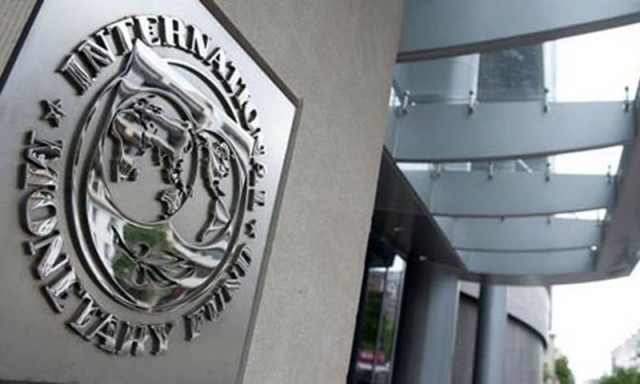Govt turns down IMF proposal to limit supplementary budgets
Lender suggested constitutional change to make parliament’s approval mandatory

PHOTO: AFP
Pakistan has turned down an International Monetary Fund (IMF) proposal to amend the Constitution so that the government needs parliament’s prior approval before obtaining a supplementary budget. The suggestion comes amid fresh concerns about the country’s external debt, which IMF now says may touch $72 billion in the next three months.
The latest IMF report on the health of Pakistan’s economy reveals that the global lender had pushed the government to amend its Constitution and make the country’s fiscal regime effective in controlling the exponentially rising debt.
IMF admits setbacks in privatisation process
The report also reveals that the IMF has revised for the fourth time in the last seven months its projection of the country’s total external debt upward. In the fresh assessment, it raised the debt ceiling for the current fiscal year ending on June 30 from $70.1 billion to roughly $72 billion.
At the time this year’s budget was passed, the IMF had projected significant growth in Pakistan’s external debt to the staggering figure of $68 billion. A net addition of $4 billion suggests the difficulties the country faces in increasing income and foreign currency reserves without borrowings. For the last more than two and a half years, the federal government has made massive borrowings to manage the budget and external accounts.
Pakistan’s external debt projections have been erratic since the beginning of the $6.2 billion IMF bailout programme, creating uncertainty in debt management and indicating lack of reforms necessary to control ballooning debt. The total public debt has been projected at Rs19.4 trillion, including Rs13.1 trillion domestic debt.
The IMF said that Pakistan’s fiscal responsibility framework has a number of important elements, but the current set of fiscal rules has not been able to effectively guide policymaking and deliver debt reduction as planned. The global lender wanted the federal government to surrender its executive powers of sanctioning supplementary budgets without parliament’s approval, according to officials who negotiated with the IMF.
Getting supplementary budgets is extremely easy right now. The finance ministry informs the National Assembly about the extent of supplementary grants during the time of approval of next year’s budget, making parliament ineffective.
Since June 2013, supplementary grants were issued to pay off circular debt, buy luxury vehicles for the prime minister and his aides, pay subsidies to affluent people like sugar barons and give grants to parliamentarians and bailout packages to PIA.
Punjab gets $100m as World Bank approves IBRD loan
The IMF called for a comprehensive overhaul of the Fiscal Responsibility Debt Limitation (FRDL) Act, 2005 to introduce more effective fiscal policy rules at the general government level.
“Some of the recommendations may require a constitutional amendment, however, the authorities opted for more limited modifications of the act by submitting to NA by end-May 2016,” the IMF report stated.
The Iftikhar Chaudhry-led Supreme Court had banned sanctioning of supplementary budgets without parliamentary approval after then prime minister Raja Pervez Ashraf got a Rs47 billion supplementary budget for his constituency.
However, after Chaudhry’s retirement, the federal government got the order reversed on the plea that the Constitution allows the federal government to issue supplementary budgets. The IMF wants to address the root cause but the government did not agree.
The IMF said Pakistan’s total debt, which is currently at 65% of GDP, is high. To put the debt-to-GDP ratio on a firm downward trajectory, there is a need to build fiscal buffers against adverse shocks, safeguard macroeconomic stability, and set the stage for sustainable and inclusive growth.
Instead of taking a holistic approach, the government has opted for limited change. Under the agreed framework, the federal government would amend the law to keep the federal budget deficit at 4% of GDP from fiscal year 2017-18 and at 3.5% of GDP from fiscal year 2019-20.
Second, it will make the condition of limiting public debt at 60% of GDP until 2017-18, and subsequently a 15-year transition path towards a debt-to-GDP ratio of 50% legally binding. Although the law requires debt to be reduced to below 60% of GDP, the government is violating this clause since it came into power.
Published in The Express Tribune, April 3rd, 2016.





1733130350-0/Untitled-design-(76)1733130350-0-208x130.webp)












COMMENTS
Comments are moderated and generally will be posted if they are on-topic and not abusive.
For more information, please see our Comments FAQ